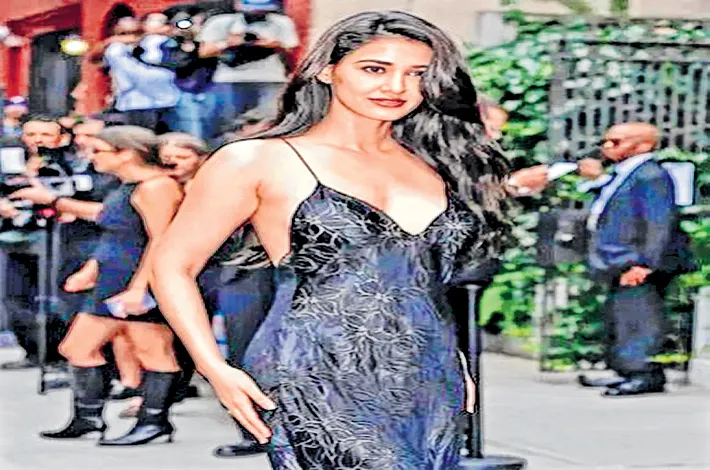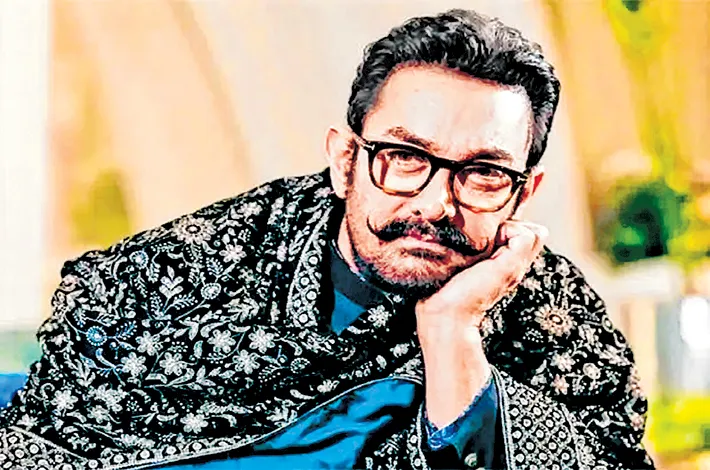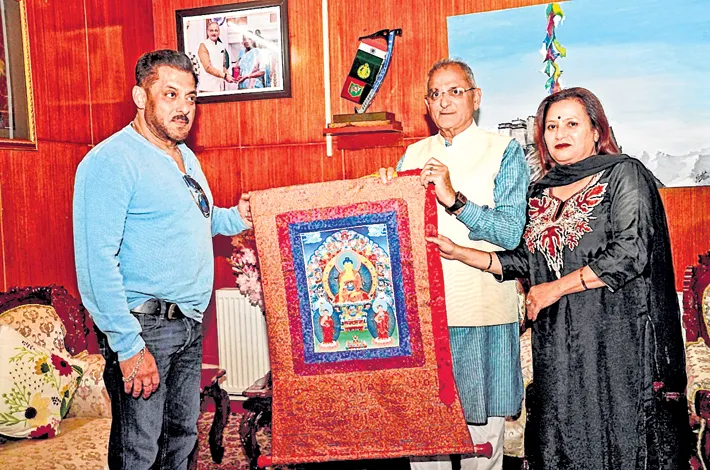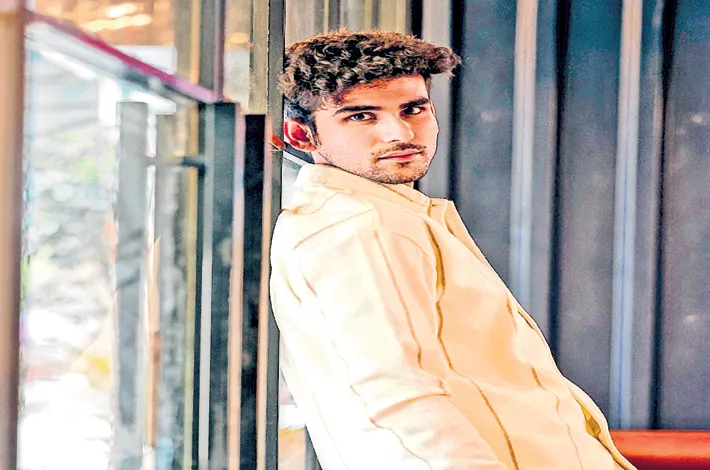A Dance of Hearts in Jaipur
04-09-2025 12:00:00 AM
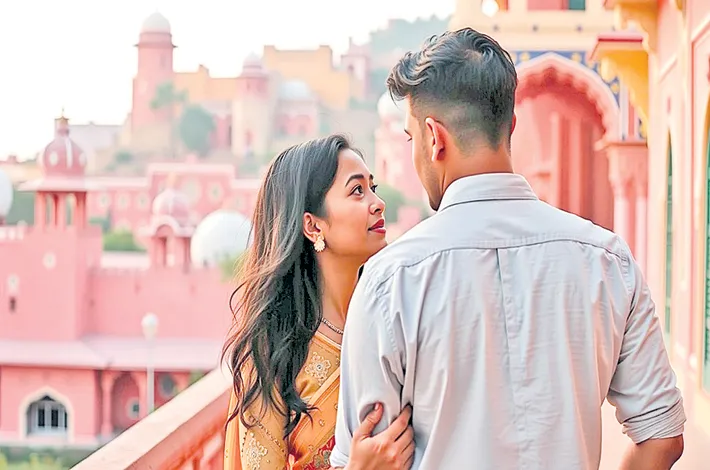
Inspired by the romantic and emotional nuances of Errid & Bytone’s storytelling style, this short story weaves a tale of love, hesitation, and serendipity set against the vibrant backdrop of Jaipur, India.
The pink city of Jaipur hummed with life as the sun dipped below the horizon, casting an amber glow over the Hawa Mahal’s latticework. The air was thick with the scent of jasmine and the distant clatter of rickshaws weaving through the bustling streets. In the heart of the old city, the annual Jaipur Literature Festival was in full swing, drawing poets, dreamers, and storytellers from across the world. Among them was Aarav Sharma, a soft-spoken writer from Udaipur, whose debut novel had just begun to stir whispers in literary circles.
Aarav wasn’t here for fame. He’d come to lose himself in the words of others, hoping to quiet the restless ache in his chest—a longing he couldn’t name. His novel, a tender exploration of unspoken love, had poured out of him after years of watching his childhood friend, Meera, marry another man. Writing had been his solace, but it hadn’t healed the wound.
Tonight, the festival’s courtyard was alive with fairy lights and the murmur of intellectual debates. Aarav sat at the edge of a crowded tent, nursing a cup of masala chai, his notebook open to a blank page. His eyes wandered to the stage where a poet was reciting verses about love’s fleeting nature. That’s when he saw her—Naina Kapoor, a Mumbai-based illustrator whose vibrant sketches had graced the covers of several bestselling novels, including his own.
Naina stood near a bookstall, her dupatta catching the breeze as she flipped through a worn copy of The Palace of Illusions. Her laughter, bright and unguarded, carried over the crowd as she bantered with the stall owner. Aarav’s heart stuttered. He’d met her once, briefly, at a publisher’s event in Delhi. She’d complimented his book’s raw honesty, and he’d mumbled something incoherent in response, too shy to hold her gaze. Now, seeing her here, bathed in the golden light of Jaipur’s evening, he felt that same pull—like a kite tethered to a string he didn’t dare release.
He didn’t approach her. Instead, he watched as she moved through the festival, her energy a stark contrast to his quiet introspection. She was like the monsoon—vibrant, unpredictable, and impossible to ignore. By the time the evening’s events wound down, Aarav had filled his notebook with fragmented thoughts about her: Eyes like kohl-rimmed poetry. A smile that could unravel the stars.
The next day, fate intervened. Aarav was slated to speak on a panel about modern Indian romance, and to his quiet panic, Naina was in the audience, sketching in a leather-bound journal. His voice wavered as he spoke about love’s fragility, about how the heart often speaks too late. Naina’s eyes met his, and for a moment, the world shrank to just the two of them. After the panel, she approached him, her sketchbook tucked under her arm.
“Your talk was beautiful, Aarav,” she said, her voice warm like the chai he’d been drinking. “It felt… personal.”
He blushed, fumbling for words. “It’s just… stories come from somewhere real, don’t they?”
She smiled, tilting her head. “Care to tell me more over dinner? There’s a place near Johari Bazaar that serves the best dal baati churma.”
Aarav’s heart raced, but he nodded, and soon they were seated at a rooftop restaurant overlooking the city’s twinkling lights. The conversation flowed effortlessly—Naina spoke of her love for capturing fleeting moments in her art, while Aarav shared his struggle to write a second novel, afraid it wouldn’t match the honesty of his first. As the night deepened, their words grew softer, more intimate. Naina admitted she’d read his book three times, moved by its quiet vulnerability.
“You wrote about love like you’ve lived it,” she said, her eyes searching his. “Have you?”
Aarav hesitated, the weight of Meera’s memory pressing against his chest. “Once,” he admitted. “But it wasn’t mine to keep.”
Naina reached across the table, her fingers brushing his. “Maybe love isn’t meant to be kept. Maybe it’s meant to be given away.”
Her words lingered in the air, and Aarav felt something shift within him—a crack in the walls he’d built around his heart. Over the next few days, they became inseparable, wandering through Jaipur’s forts and markets, sharing stories under the shade of neem trees. Naina sketched Aarav at Amber Fort, his silhouette framed against the ancient walls, while he wrote poems about her in his notebook, too shy to share them.
On the festival’s final night, a grand Rajasthani folk performance lit up the Diggi Palace. As the dancers swirled in a kaleidoscope of colors, Naina pulled Aarav into the crowd, teaching him the steps of a traditional ghoomar. He stumbled, laughing, his usual reserve melting under her infectious joy. Under the starlit sky, with the music pulsing around them, Naina leaned close, her breath warm against his ear.
“Don’t let this be another story you only write about, Aarav,” she whispered. “Live it.”
For a moment, he froze, the fear of heartbreak warring with the pull of her nearness. But then he cupped her face, his thumb tracing the curve of her cheek, and kissed her. It was soft at first, tentative, like the first rain of the season, then deeper, a promise of something new. The crowd faded, the music softened, and all that remained was the rhythm of their hearts, beating in sync.
When the festival ended, Aarav and Naina stood at the Jaipur railway station, their hands entwined. She was headed back to Mumbai, he to Udaipur. The distance loomed like an unspoken question, but Naina’s smile was unwavering.
“Write me into your next book,” she teased, pressing a sketch into his hand—a drawing of them dancing under the stars.
“And you,” he said, his voice steady for the first time, “paint me into your art.”
As her train pulled away, Aarav unfolded the sketch, his heart full. He didn’t know what the future held, but for the first time, he wasn’t afraid to find out. In the margins of his notebook, he wrote: She was my monsoon, and I was ready to get drenched.





